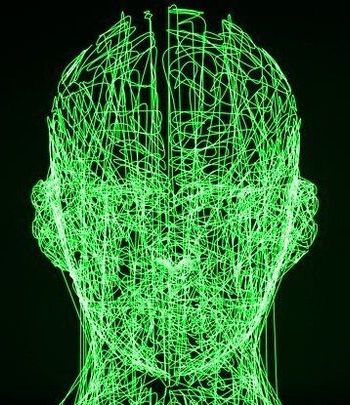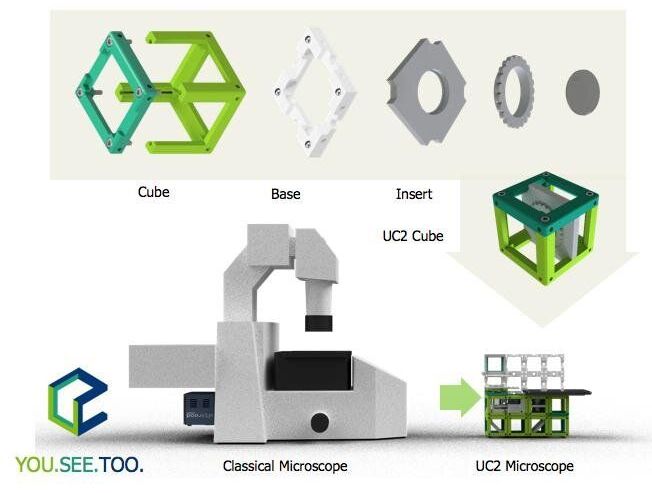No one-trick dragstrip pony, this—we bend it through 14 turns at Carolina Motorsports Park.





Recent technological advances have enabled the development of increasingly compact and flexible devices. This includes wearable or portable technology, such as smart watches, earphones or other smart accessories, which can assist human users in a variety of ways.
Researchers at University of California, Los Angeles (UCLA) have recently devised a strategy that could enable the fabrication of portable, compact and flexible electrocaloric cooling devices. This strategy, outlined in a paper published in Nature Energy, is based on a four-layer cascade mechanism that enables a significant temperature lift in a user’s surroundings.
“Our research started more than five years ago, when we were funded by ARPA-E, an agency of the U.S. department of energy, to solve a key cooling need: to maintain sufficient personal thermal comfort while reducing the HVAC energy consumption for offices and buildings,” Qibing Pei, one of the researchers who carried out the study, told TechXplore. “Our key goal was to create a wearable cooler.”


Artificial intelligence is being developed that can analyze whether it’s own decision or prediction is reliable.
…An AI that is aware/determine or analyze it’s own weaknesses. Basically, it should help doctors or passengers of the AI know quickly the risk involved.
How might The Terminator have played out if Skynet had decided it probably wasn’t responsible enough to hold the keys to the entire US nuclear arsenal? As it turns out, scientists may just have saved us from such a future AI-led apocalypse, by creating neural networks that know when they’re untrustworthy.
These deep learning neural networks are designed to mimic the human brain by weighing up a multitude of factors in balance with each other, spotting patterns in masses of data that humans don’t have the capacity to analyse.
While Skynet might still be some way off, AI is already making decisions in fields that affect human lives like autonomous driving and medical diagnosis, and that means it’s vital that they’re as accurate as possible. To help towards this goal, this newly created neural network system can generate its confidence level as well as its predictions.

A new way your manager or boss will be monitoring you at work. 😃
Microsoft 365’s “productivity score” shows employers how many days in the last month you’ve been on Microsoft apps and the number of times you’ve used video in meetings.

A bridge in Utah helps animals and humans live better alongside each other. 😃
UTAH (WJW) — A wildlife crossing, built just for animals, is being called a success in Utah.

Modern microscopes used for biological imaging are expensive, are located in specialized laboratories and require highly qualified staff. To research novel, creative approaches to address urgent scientific issues—for example in the fight against infectious diseases such as COVID-19—is thus primarily reserved for scientists at well-equipped research institutions in rich countries. A young research team from the Leibniz Institute of Photonic Technology (Leibniz IPHT) in Jena, the Friedrich Schiller University and Jena University Hospital wants to change this: The researchers have developed an optical toolbox to build microscopes for a few hundred euros that deliver high-resolution images comparable to commercial microscopes that cost a hundred to a thousand times more. With open-source blueprints, components from the 3D printer and smartphone camera, the UC2 (You. See. Too.) modular system can be combined specifically in the way the research question requires—from long-term observation of living organisms in the incubator to a toolbox for optics education. The research team presents its development on November 25, 2020 in the renowned journal Nature Communications.
The basic building block of the UC2 system is a simple 3D printable cube with an edge length of 5 centimeters, which can host a variety of components such as lenses, LEDs or cameras. Several such cubes are plugged on a magnetic raster base plate. Cleverly arranged, the modules thus result in a powerful optical instrument. An optical concept according to which focal planes of adjacent lenses coincide is the basis for most of the complex optical setups such as modern microscopes. With the UC2 toolbox, the research team of Ph.D. students at the lab of Prof. Dr. Rainer Heintzmann, Leibniz IPHT and Friedrich Schiller University Jena, shows how this inherently modular process can be understood intuitively in hands-on-experiments. In this way, UC2 also provides users without technical training with an optical tool that they can use, modify and expand—depending on what they are researching.